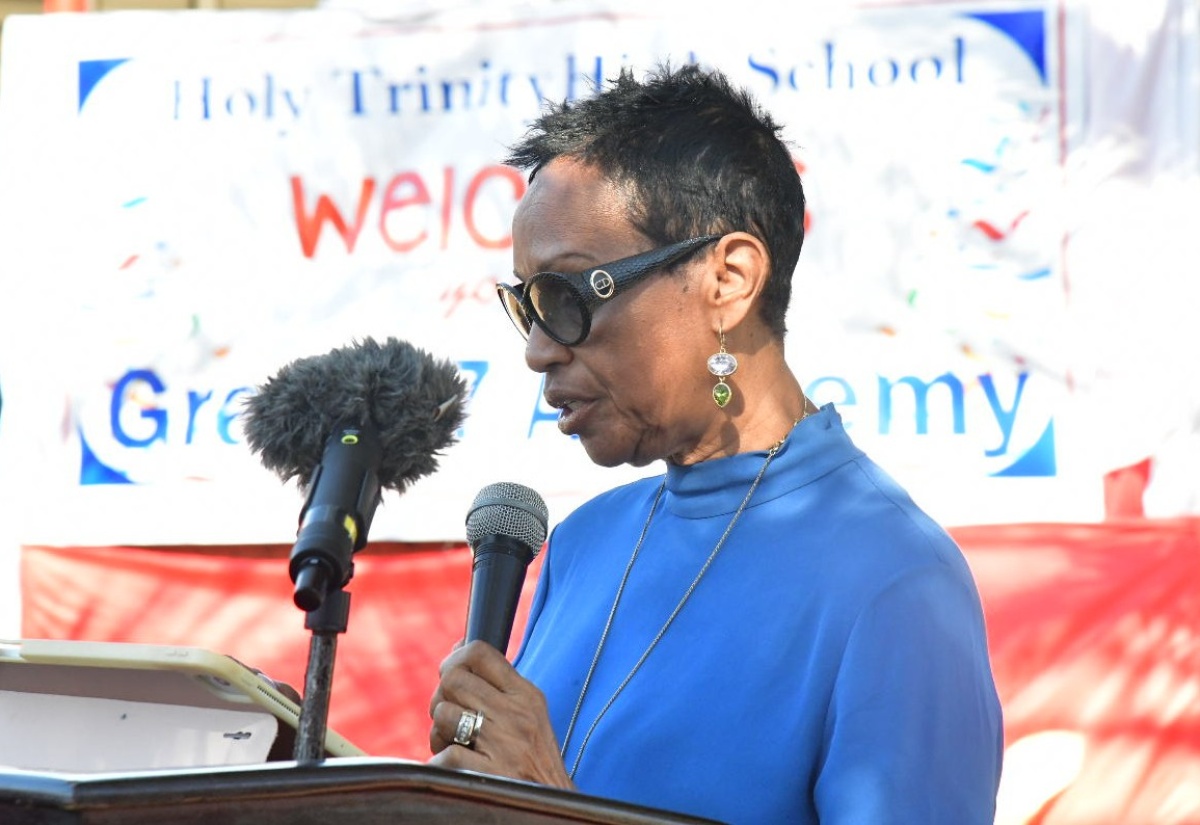The Grade 7 Academy, which has been operational at Holy Trinity High School in Kingston since September, is already reporting progress in student performance.
The programme, spearheaded by St. Michael’s College in partnership with the Ministry of Education, Skills, Youth and Information, offers an adjusted curriculum focused on remedial reading, writing and numeracy.
Student *Anthony Brown, who is enrolled in the Academy, scored 37 per cent in decoding and 22 per cent in comprehension on his first Reading Progress Indicator (RPI) at the start of the 2024/25 academic year.
After engaging with the curriculum for four months, *Anthony’s performance on the RPI moved to 45 per cent for decoding and 38 per cent in comprehension.
On the Informal Diagnostic Reading Inventory (IDRI), he scored as a primer in September and by December, he was at the grade two level.
Another student *Joel Black, scored 27 per cent in comprehension and zero per cent in decoding, on his first RPI and below pre-primer on the IDRI. By December, *Joel’s score on the RPI improved and he was at the grade one level on the IDRI.
An assessment of the cohort’s reading levels in December found that over 52 per cent of students have improved by at least half of a grade level.
Another 11 per cent showed improvement between 0.6 and 1.5 grade levels and a further 12 per cent improving over 1.5 grade levels and above.
There were also encouraging results in mathematics.
Instructional Leader, Dr. Faith Alexander, shared that the original mathematics diagnostic test in September 2024 was set at the grade-six level, but none of the students were able to engage with the assessment as they could not read the word problems or comprehend what was being asked of them.
“We had to then reassess with a fourth-grade instrument. Of the 170 students, 143 completed the math diagnostic test. Sixty-eight students scored between zero and 23; 45 students scored between 24 and 29; 28 students scored between 30 and 38; and only two students scored between 39 and 60,” she said of the assessment which was graded out of 100.
She noted that 78 per cent of students fell in the critical non-mastery category at the time.
“We are now seeing that the non-mastery category has been significantly reduced with now only 30 per cent of the students falling in that category,” Dr. Alexander said.
“While these are very early results, we are extremely pleased and excited but cautiously optimistic that our students will continue to improve in both their literacy and numeracy skills over the period of this intervention,” she shared.
The students’ progress is attributed to smaller class sizes with no more than 20 students and the use of technology, among other things.
“We have, with the Ministry’s permission, scaled back the curriculum. Students have two blocks of 90-minutes each of uninterrupted language arts and math. They also have an additional 40 minutes daily on the software Fast ForWord for language arts and ClearMath for mathematics,” Dr. Alexander said.
The objective of the Grade 7 Academy is to ensure that, by the end of the school year, a minimum 70 per cent of students are brought up to at least grade-six literacy and numeracy standards, attaining the proficiency required to engage with the traditional high-school curriculum in their second year.


